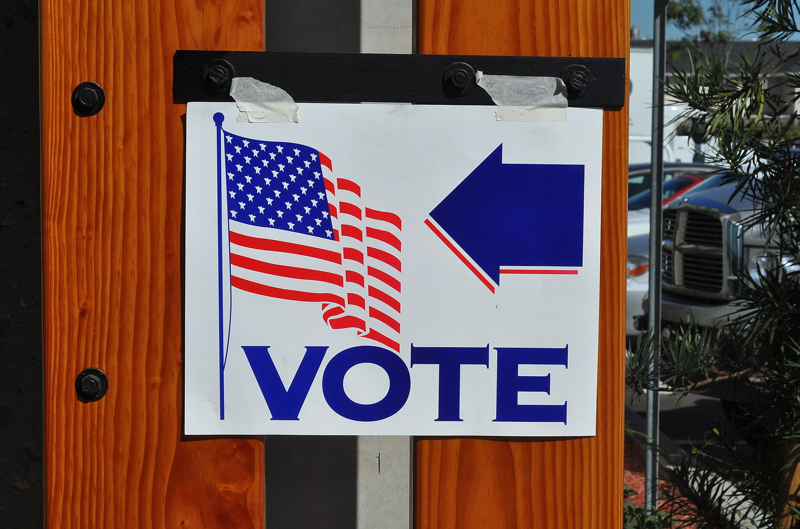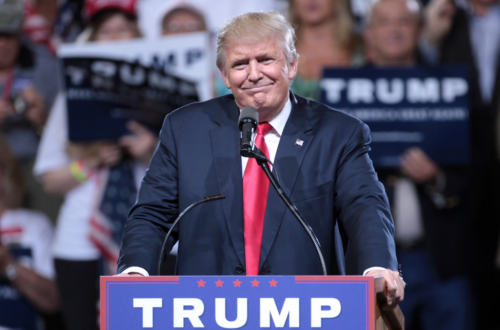In 1968, the state of Florida ratified a new constitution. The new document was intended to democratize a state that had long been dominated by rural segregationists who represented a tiny minority of the population but a majority of the seats in Tallahassee.
One of the most notable features of this constitution is its amendment mechanism, which stipulates that proposed amendments or revisions “shall be submitted to the electors at the next general election.” If a measure gets 60% approval, it becomes constitutional law.
That means that when Floridians cast their ballots, they’re voting for more than just individual candidates. In the largest swing state in the country, ballot initiatives usually take a backseat to the drama of top-ticket races. Yet the amendments have arguably the greatest chance of impacting Floridians’ daily lives in the future.
This year there are six measures on the ballot in Florida.
Amendment 1: Citizenship Requirement to Vote in Florida Elections
Amendment 1 offers the least substantive policy change of the six. If the title sounds like something that should already be the law, that’s because it is.
Currently, the state constitution says “every citizen” may vote, and it is illegal for non-citizens to vote. This amendment will change that text to say “only a citizen” may vote.
Florida Citizen Voters, which sponsored the initiative, says the amendment will prevent cities from allowing non-citizens to vote, and the Republican Party of Florida has endorsed it.
Many critics argue that the measure is a gimmick or a waste of time. Florida Tax Watch calls it “a solution in search of a problem,” while the ACLU of Florida warns that exclusionary language could provide pretext for voter suppression even among eligible citizens.
Amendment 2: Raising Florida’s Minimum Wage
Amendment 2, meanwhile, would be a significant policy shift for the state. It would nearly double the hourly minimum wage to $15 by 2026. It would progressively raise to $10 in 2021, then increasse by $1 per year until it reaches $15. After that point, it will be indexed annually to adjust for inflation.
The state’s minimum wage is already indexed, but it has been criticized for being less than a living wage. Because the current law was established by a ballot initiative in 2004, it can only be updated via another initiative.
Supporters of the amendment, including its sponsors, Florida for a Fair Wage, say it would dignify workers and help solve the state’s burgeoning economic inequality, which is the second highest in the country. The amendment is also supported by the Florida Democratic Party.
Opponents like the Florida Chamber of Commerce argue that the increased labor costs would ripple through the state economy and offset any benefit to Florida workers. Critics also note that the coronavirus pandemic would only make this process more difficult for businesses.
Amendment 3: All Voters Vote in Primary Elections for State Legislature, Governor and Cabinet
Amendment 3 would change Florida from having the most restrictive type of primary elections, closed primaries, to the most wide-open type sometimes called “jungle primaries.”
If passed, all candidates from all parties would appear on one ballot, and the top two candidates, regardless of affiliation, would advance to the general election. This means statewide general elections could be between two Republicans or two Democrats.
Supporters, including its sponsor, All Voters Vote, point out that such an outcome could be prevented by independent voters who constitute over a quarter of the state electorate and will force candidates to appeal to the middle. They also argue that having every candidate on one ballot is the most democratic way to conduct an election.
Yet Amendment 3 has drawn the ire of both the Democratic and Republican parties, with the Florida GOP publishing a long rebuke on their website. Many progressive advocacy groups agree, such as People Over Profit, which argues the amendment will severely reduce the representation of minorities in the state legislature, especially Black representation.
Amendment 4: Voter Approval of Constitutional Amendments
The title of Amendment 4 seemingly describes the way the constitution is already altered, but its passage would mean significant changes to the process by forcing all ballot initiatives to pass twice. That would mean twice as much time and money spent campaigning, and two cycles in a row where voters will have to decide on the same issues.
Its sponsor, a group called Keep Our Constitution Clean PC, argues that the amendment preserves the constitutions for future generations and prevents “legislating through the constitution.” Aside from the sponsors themselves, the amendment has garnered little mainstream support.
Opponents argue that this amendment would seriously stymie the democratic process in Florida and weaken ballot access for citizen initiatives. Florida Today reports that 11 of the state’s largest newspapers all recommend voting against the amendment with none supporting it. The Florida Democratic Party also opposes it.
Amendment 5: Limitation on Homestead Assessments
Amendment 5 is a fairly niche property law that would extend by one year the amount of time Floridians have to move their homestead exemption tax benefit. The amendment reached the ballot not by citizen initiative but rather by a joint resolution in the Florida Legislature. It passed without opposition.
One notable opponent of the proposal is the League of Women Voters, which objects to any constitutional amendments that specify or limit state revenue sources. The league also notes that local governments could lose millions in revenue for schools or emergency services.
Amendment 6: Ad Valorem Tax Discount for the Spouses of Certain Deceased Veterans
Lastly, Amendment 6 would extend property tax discounts to the widows or widowers of disabled combat-veterans after the veteran passes away if the spouse holds the title and permanently lives on the property in question. This amendment also originated in the Legislature and passed without opposition.
Like Amendment 5, the league is its only notable opponent due to its opposition to putting tax law in the constitution.
Featured image: A sign directing voters into a polling station. Unmodified photo by Tom Arthur used under a Creative Commons license. (https://bit.ly/3mjh7vb)
Check out other recent articles from the Florida Political Review here.





